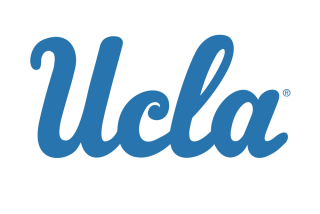Georgia Case May Trigger Reform
- Share via
Despite the costly lesson inflicted upon Georgia, athletes will continue to enjoy a privileged existence on campuses across the country.
College administrators, though, have been amply warned that it can be expensive if they step too far out of bounds.
Understandably, no school wishes to identify itself with the University of Georgia, which was ordered to pay $2.5 million in damages to former professor Jan Kemp. Kemp claimed she had been fired from her job because she protested preferential treatment for student athletes on the Athens campus.
Michael Bowers, the Georgia Attorney General, has announced that the state will file a motion for a new trial.
Whether or not administrators and athletic personnel admit to similar problems on their own campuses, the Kemp decision is certain to provoke subtle changes in dealing with athletes.
“The decision pleased me and it was a very good decision,” said Dr. Mary Jane Schenck, chairperson for the Department of Humanities at the University of Tampa, a Division II school. “It should send a signal to athletic departments that they can’t intimidate faculty. There has historically been some preferential treatment for athletes at universities and I think people understand that this is a particularly American phenomenom.
“The athletic program and academic programs are not at odds in schools where coaches see to it students are encouraged to maintain a good grade-point average. The problem comes when coaches think they are a world unto themselves.”
There is recognition that athletes are compelled to devote much of their time to sports and often require help in keeping up with their studies. According to a survey conducted by United Press International, there seems to be little if any opposition to this as long as it is structured within proper guidelines.
At the University of California Berkeley, the Athletic Study Center was begun two years ago, partly in response to the desire of football coach Joe Kapp to see more of his players graduate. The center, currently staffed by 55-60 tutors, is a night time equivalent of one run during the day for the general student population.
“We recognized that the amount of time that is required of athletes puts a premium on their time away from the sport,” said Dr. Robert Price, program coordinator for the center. “Basically, these athletes are asked to do two full-time jobs: first, to be an athlete, and second, to be a student.
“Given that time conflict, it was our view that unless there was a structured program that served as a supplement, not substitute, to their regular class work, we were not giving the athletes a chance to succeed. If the university was going to participate in major collegiate athletics, it has an ethical responsibility to provide such an infrastructure.
“In light of the Georgia case, I think it is important to note that students do not get credit for coming to the center. It is only a supplement.”
A similar rationalization is offered by West Virginia basketball Coach Gale Catlett, who says he never has known a case at WVU where a student athlete was given something for nothing.
“I’ve seen students, athletes and non-athletes, given extra help--extra work--and I don’t see anything wrong with that,” Catlett said. “Nobody favors the athletes academically that I can see.”
Mack Brown, football coach and athletic director at Tulane, said preferential treatment of student athletes would not be tolerated at the New Orleans school.
“We wouldn’t do that at Tulane,” Brown said, adding that the majority of college coaches recruit the best student athletes they can find.
Brown, who pointed out that he wasn’t fully acquainted with the particulars of the Kemp-Georgia situation, said he never has interfered with a professor concerning a student athlete other than to call an instructor to ascertain that a particular one was attending class.
“Our young people are required to go to class,” he said.
Stanley Ikenberry, president of the University of Illinois, said a situation similar to Georgia could not happen on his campus.
“I think if anything like that were tried at the University of Illinois the faculty members would blow the whistle in a minute,” Ikenberry said. “It’s difficult to imagine that kind of thing could happen here.”
Saying that no faculty member ever had complained to him of pressure to change grades, Ikenberry added, “It’s simply understood around here that that’s not how you do business.”
More to Read
Go beyond the scoreboard
Get the latest on L.A.'s teams in the daily Sports Report newsletter.
You may occasionally receive promotional content from the Los Angeles Times.









